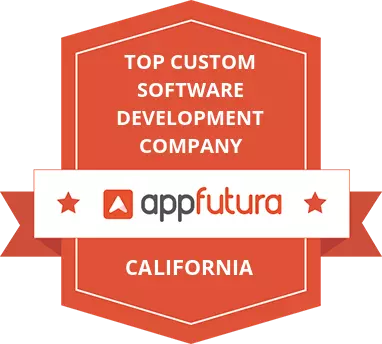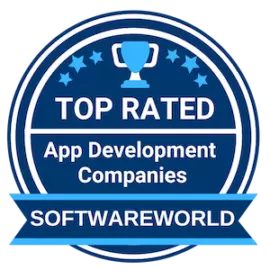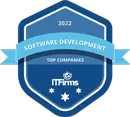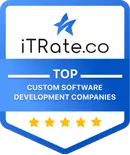Helping to Build an Integrated, Compliant Blood-Sampling Tool Kit
A provider of medical devices relied on Altoros to deliver a software prototype for facilitating remote blood collection and then turned an MVP into a comprehensive, secure application adopted across the US—compliant with major healthcare regulations.
Description
Brief results of the collaboration:
- The customer developed a HIPAA-compliant software that facilitates blood collection at home, saving time on visiting a doctor.
- The delivered digital prototype helped the company to identify essential functionality— evaluated by target groups and investors—to be included in a minimum viable product (MVP) and get necessary funding for that.
- In the end, the customer released a full-fledged, secure application adopted by thousands of patients who conduct 10,000+ blood checkups monthly.
- With an integration testing framework customly built by Altoros, the engineering tests can be done with 3x less code now. The team slashed testing times during deployment from 1 hour to just 10 mins (by 6x), cutting cloud costs by $5,000 per month.
- While the digital prototype won an award at a large conference, the released software product was certified according to major regulations in both US and EU.
The customer
Based in the US, the customer is a healthcare startup serving medical institutions and clinical research organizations. The company raised more than $130-million investment for its flagship device—a tool kit for self-collection of blood samples. Saving the need to visit a doctor, the tool kit allows for drawing blood samples at home and sending them by post. At the same time, healthcare providers can monitor the status of the samples during transportation and laboratory analysis.
The need
Initially, the company turned to Altoros to build a digital prototype enabling to assign devices to patients, visualize data on dashboards for doctors, and send reminders to collect blood or take medicine. The customer was looking for experts in rapid prototyping, mobile development, and cloud engineering—with proven track record of building healthcare solutions.
After the successful delivery of the digital prototype (and then an MVP), the company received another round of funding and asked Altoros to enhance the web part. This time, until the system’s official release, a strong focus was put on security and compliance.
The challenges
The team had to address the following issues:
- During the proof of concept phase, the customer wanted to evaluate technologies and features on the go, adapting functionality to early feedback. As part of this, the company aimed to present its digital prototype at a large-scale pharmaceutical event, building the system under tight deadlines.
- The MVP needed to be integrated with medical and courier services, giving a user relevant data about the statuses of patients’ tool kits—often, based on chaotic information received via an API.
- Dealing with personal data, the system had to comply with numerous industry-specific regulations that focus on privacy and security.
The solution
Stage 1. After analyzing requirements, Altoros put together a team of architects and engineers who delivered a live prototype within the urgent timelines. With an architecture built on top of Amazon’s HIPAAcompliant services, the app enabled doctors to assign tool kits to patients by scanning a barcode via a phone and then read temperature measurements inside NFC tags upon receiving the samples. Meanwhile, patients could get reminders to collect samples, take medicine, and do health checks via their mobile apps.
Stage 2. After the customer spent some time building an MVP, Altoros joined again and helped to turn it into a multifunctional system. In particular, the developers delivered a web dashboard—integrated with APIs of medical and couriers’ services—enabling to track the status of samples from clinics to a patient and back.
Stage 3. The engineers enhanced overall security and fixed the MVP’s bottlenecks, achieving compliance with healthcare regulations. While enabling medical institutions to export patients’ information, the team cut the download time from 7 to 2–3 mins and ensured storing / processing this data only until it is needed.
Stage 4. To automate infrastructure tasks, the experts designed a continuous integration / delivery pipeline across 30 repositories. After cutting down the testing time during deployment from 1 hour to just 10 mins, the developers fixed critical flaws and introduced logging, permissions boundaries, container scanning, docs automation, cross-project guidelines, etc.
Stage 5. Finally, the engineers covered the code with unit and integration tests, and helped with onboarding.
30+
project
modules
6x
faster
testing
$5,000
saved per
month
The outcome
Partnering with Altoros, the customer developed a HIPAA-compliant software product enabling to dramatically cut time on blood collection. Ensuring more frequent checkups and potentially saving more lives, this innovation is contributing to minimizing the risks of exposing to coronavirus / flu in public facilities. The initial prototype won a nomination at a large pharmaceutical conference and helped to secure new rounds of funding necessary for an MVP. Relying on the findings achieved together with Altoros, the customer integrated a full-fledged application with medical laboratories’ and postal services, establishing a transparent, digitized supply chain process.
With an integration testing framework customly built by Altoros, the engineering tests require 3x less code now. Besides cutting the testing time during deployment from 60 to 10 mins, the team fixed issues and optimized cloud costs, saving $5,000 monthly. One of the recent accomplishments is the SOC 2 Type 2 compliance—in addition to CE mark certification and FDA’s 510(k) clearance earned earlier. Adopted by thousands of patients in the US who conduct 10,000+ trials per month now, the tool kit is being prepared to enter the European markets.
Platform
Amazon Web Services
Programming languages
JavaScript, TypeScript, Kotlin
Frameworks and tools
AWS services (Amazon VPC, ECS, Lambda, Cognito, API Gateway, ECR, WAF, etc.), Node.js, React, Sequelize ORM, Serverless Framework, GitLab, Firebase Cloud Messaging, Dagger, Retrofit, Simple Barcode Scanner, Moshi, Selenium, Cucumber, Swagger, Express.js
Data storages
Amazon RDS, Amazon S3, PostgreSQL, DynamoDB
Seeking a solution like this?
Contact us and get a quote within 24 hours
































